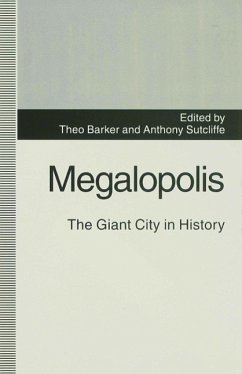
The Habitable City in China
Urban History in the Twentieth Century
Herausgegeben: Lincoln, Toby; Tao, Xu
Versandkostenfrei!
Versandfertig in 6-10 Tagen
106,99 €
inkl. MwSt.

PAYBACK Punkte
53 °P sammeln!
This book offers a new perspective on Chinese urban history by exploring cities as habitable spaces. China, the world's most populous nation, is now its newest urban society, and the pace of this unprecedented historical transformation has increased in recent decades. The contributors to this book conceptualise cities as first providing the necessities of life, and then becoming places in which the quality of life can be improved. They focus on how cities have been made secure during times of instability, how their inhabitants have consumed everything from the simplest of foods to the most exp...
This book offers a new perspective on Chinese urban history by exploring cities as habitable spaces. China, the world's most populous nation, is now its newest urban society, and the pace of this unprecedented historical transformation has increased in recent decades. The contributors to this book conceptualise cities as first providing the necessities of life, and then becoming places in which the quality of life can be improved. They focus on how cities have been made secure during times of instability, how their inhabitants have consumed everything from the simplest of foods to the most expensive luxuries, and how they have been planned as ideal spaces. Drawing examples from across the country, this book offers comparisons between different cities, highlights continuities across time and space-and in doing so may provide solutions to some of the problems that continue to affect Chinese cities today.












